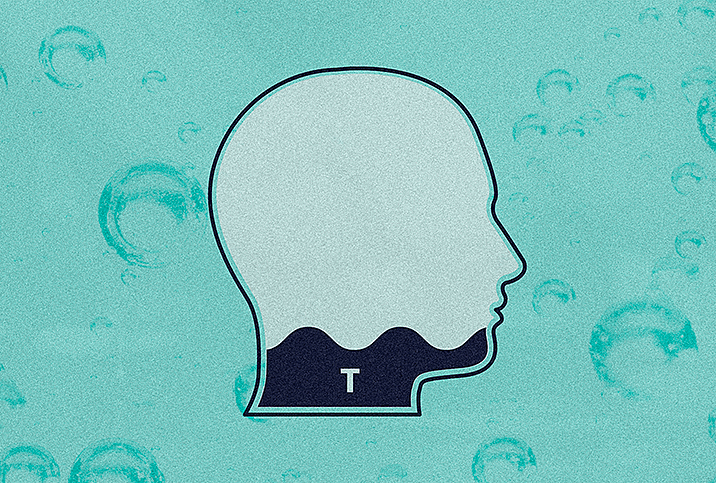Low-T Solutions: Do Over-the-Counter & Late-Night TV Options Work?

Low-testosterone (low-T) supplements have become a modern-day buzz topic. On late-night commercials and ads during sporting events, low-T boosters promise to deliver all kinds of benefits.
But do they really work?
If you're on the fence about whether to take one of the many popular low-testosterone solutions, find out if they're the right solution for your needs.
What are the symptoms of low testosterone?
Males typically start to lose testosterone at some point in their 30s. In some cases, this isn't a cause for concern but rather a natural side effect of aging. It's estimated that 2 in 10 men age 60 and older and 3 in 10 men age 70 and older suffer from low testosterone. Overall, experts believe about 2 percent of the population suffers a testosterone deficiency. Since men may be fearful to admit their sexual dysfunction, the total number of low-T sufferers may actually be substantially higher.
Testosterone boosters are typically aimed at a target market between the ages of 30 and 60. And to a great extent, the advertisers are hoping to get you to self-diagnose in order to avail yourself of their products. Unfortunately, too many men diagnose themselves with low testosterone—they exhibit symptoms of fatigue, irritability, depression, low sex drive, erectile dysfunction, less athletic output, obesity, and a lack of hair growth on the hair, face or body—even though other ailments can manifest themselves in similar ways.
The only sure way to know if you have low testosterone is to visit your doctor. Physicians can conduct a blood test to determine if your testosterone is too low; less than 300 nanograms of testosterone per deciliter of blood is considered low.
Do OTC and TV testosterone boosters work?
Low-T solutions, the kind you find on the shelf at the pharmacy or on late-night TV commercials, generally come in a powdered form. Most of the time, they contain a mix of herbs, vitamins and minerals, although cheaper options may also have some sort of filler. Manufacturers often tell users to take several doses a day and, voila, you'll suddenly have the vigor and sex drive of a man in his early 20s.
Sadly, that claim may only work for men in their early 20s.
Studies are limited on these types of substances, and none of the products has been tested or approved by the Food and Drug Administration for distribution as a drug. The reason is that these low-T supplement manufacturers seek FDA approval for their products as a food rather than as a drug or a solution. As a result, there is little to no proof as to the viability or efficacy of over-the-counter (OTC) low-testosterone boosters.
Alternatives to OTC low-testosterone supplements
If you're genuinely trying to increase your testosterone levels, your journey should start with your doctor, who can steer you toward the many medications available for low-T specifically.
If you're searching for alternative solutions to low testosterone, try adding a few of these suggestions to your regular routine:
-
Exercise regularly, as this naturally increases testosterone in men.
-
Add foods rich in potassium to your diet. These can help your body synthesize more testosterone.
-
Get more sleep; aim for seven to nine hours each night.
-
Reduce stress and anxiety by working on strategies to relax from your job or other stress-inducing situations.
-
Take a zinc supplement, as research shows that zinc can help men maintain their current testosterone levels and curb erectile dysfunction (ED).
If you're still suffering from the symptoms of low-T, your doctor may prescribe hormones or medications to help boost your testosterone.
Other causes of low testosterone
Before you start scouring the internet for low-T solutions, keep in mind that many of the same symptoms discussed earlier can be the result of very different conditions or diseases that you may want to consider.
Other causes of low testosterone include:
-
Testicular disorders or issues
-
Pituitary gland problems
-
Sarcoidosis or tuberculosis
-
Various cancer treatments, such as chemotherapy
-
Prostate issues
-
A sedentary lifestyle with little or no regular exercise
The older you get, the more difficult it becomes to self-diagnose low-T. We're back to the advice to talk to your doctor, keep up your regular checkups—especially after age 50—and think about making some changes to your lifestyle.
Yes, the efficacy of OTC and late-night television low-testosterone powders and supplements is a debatable topic, but the lack of any kind of FDA or doctor approval speaks pretty loudly.

















